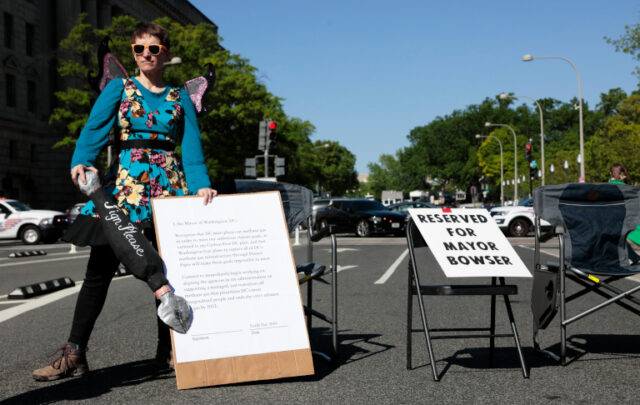Welcome to the ODAC Newsletter, a weekly roundup from the Oil Depletion Analysis Centre, the UK registered charity dedicated to raising awareness of peak oil.
Evidence that the oil price is killing the economy came by the tanker-load this week. The FT reported that the cost of oil imports to the EU has increased from $280bn in 2010 to $402bn this year. Meanwhile the newly created Office of Budget Responsibility for the UK named oil prices as a key factor in a drastic downward revision of its economic and fiscal outlook released this week. With the price of a barrel driven higher by geology and geopolitics, there is no prospect of meaningful relief until our oil dependency is radically reduced.
Chancellor George Osborne acknowledged the effect of the oil price in an interview on Radio 4’s Today Programme, but his response has been depressingly short-termist. The most direct measure was a further postponement of the fuel duty escalator — there will now be no rise until August 2012 at the earliest. While this will play well with voters it does nothing to address the crux of the problem — the urgent need to reduce oil dependency. Other energy measures in the Autumn Statement included the postponement of government spending on carbon capture and storage, and rebates for energy intensive industries as the government moved further away from its green agenda towards an economic-growth-at-all-costs programme. A more positive move was a cap on rail fare increases – although they can still rise a sizeable 6%.
One area where the government does seem to be working hard is in its apparent efforts to derail a European move to designate oil from tar sands as higher emission fuels. Such a move would cause suppliers trying to meet transport fuel emission targets to avoid such fuels. The Guardian revealed that UK ministers are working closely with Canada, BP and Shell to avoid that outcome. Energy Secretary Chris Huhne restated Britain’s commitment to meeting emissions targets before joining other leaders at the Durban Climate Change Conference, but he looks increasingly isolated in the government. We are moving towards both an economic and environmental crash.
Oil
EU oil import costs soar above $400bn
The European Union’s oil import costs have soared to more than $400bn…
More Fuel for the Euro Zone’s Fire
Drivers reserve their worst curses for when gasoline spikes above $4 a gallon. But when that happened in 2008, it didn’t last long. Far more insidious is the situation now, with nominal prices not quite as high but consistently strong.
One way to account for that stronger-for-longer factor is to look at fuel prices on a 12-month rolling average. On this measure, consultancy JBC Energy points out that oil price strength has actually surpassed 2008 levels. Brent crude oil’s 12-month average peaked just shy of $106 a barrel in September 2008, a few days after Lehman Brothers collapsed. Oil followed…
Oil Rises to Two-Week High After Central Banks Boost Liquidity
Oil rose to a two-week high in New York after the Federal Reserve and five other central banks made additional funds available to ease strains from Europe’s debt crisis and as U.S. companies added more workers than projected.
Futures climbed above $100 a barrel as the central banks of the U.S., the euro region, Canada, the U.K., Japan and Switzerland cut the cost of emergency funding for European banks. Businesses added 206,000 jobs this month, the most this year, ADP Employer Services said today…
UK secretly helping Canada push its oil sands project
The UK government has been giving secret support at the very highest levels to Canada’s campaign against European penalties on its highly polluting tar sands fuel, the Guardian can reveal.
At the same time, the UK government was being lobbied by Shell and BP, which both have major tar sands projects in Alberta, and opened a new consulate in the province to “support British commercial interests”…
Oil sands opponents turn focus to Enbridge project
Enbridge Inc’s proposed C$5.5 billion ($5.3 billion) pipeline to British Columbia poses a raft of environmental risks, according to a new report that signals the project will become the next battleground over the future of Canada’s oil sands.
The study by a trio of environmental groups, released on Tuesday, comes on the heels of a U.S. decision to push back approval of TransCanada Corp’s Alberta-to-Texas Keystone XL pipeline by more than a year…
Cairn finds no oil off Greenland
A $1bn (£640m) bet by a British firm to find commercial quantities of oil in the Arctic has ended in failure and there is now mounting speculation there will be no more drilling by Cairn Energy next year.
The controversial exploration off Greenland was physically opposed by Greenpeace but Cairn has been forced to retreat by complex geology and growing criticism in the City…
Uganda’s Oil Could Be Gift That Becomes a Curse
When billions of barrels of oil reserves were found in Uganda five years ago, the discovery seemed like a gift from heaven to many in this poor, landlocked country.
Despite Ugandans’ dreams of industrialization, the country’s most lucrative export is coffee, and fish is second. Nearly 40 percent of the population survives on less than $1.25 a day, according to the World Bank. But when oil starts pumping within the next several years, the expected revenue of up to $2 billion a year could propel Uganda into the strata of middle-income countries, where few sub-Saharan African countries rank. A refinery will be built; infrastructure is promised…
Gas
New York City fracking hearing draws opposition
A final hearing on proposals to lift a ban on drilling for natural gas in New York state drew a crowd of protesters on Wednesday opposing further energy development there.
New York City hosted the last of four hearings to discuss the Department of Environmental Conservation’s (DEC) new rules that could open the state’s borders next year to a controversial drilling technique known as fracking…
Renewables
EU prepares for 80 per cent increase in renewables capacity
The coming decade will experience a 17-fold increase in offshore wind energy capacity across Europe, while concentrated solar power and marine energy should deliver similar growth rates if EU member states fulfil their stated plans to install renewable technologies.
That is the conclusion of a new report from the European Environment Agency (EEA), although separate research on the dire economic environment faced by wind turbine manufacturers in particular may serve to cast some doubt on the agency’s predicted build rates…
Wind power to make up half of Danish energy use in 2020
Denmark aims to have wind power supply half of the country’s electricity needs in 2020, under a new programme presented by Climate and Energy Minister Martin Lidegaard on Friday.
“Denmark must use a lot more renewable energy and we will have to become much better at using energy efficiently,” Lidegaard told reporters…
UK’s faith in nuclear power threatens renewables, says German energy expert
Building new nuclear power stations will make it harder for the UK to switch to renewable energy, said one of the top German officials leading the country’s nuclear energy phase-out.
Germany said shortly after the Fukushima disaster in March that it would phase out its nuclear plants by 2022, while the UK is planning to build eight new nuclear plants as well as massively increase the amount of energy generated from wind power…
Geothermal heat may be accessible via old oil and gas wells, scientists say
Since you’ve already drilled the hole .?.?.
Old oil and gas wells might soon be reborn as environmentally friendly geothermal power generators.
Geothermal energy holds promise as a low-carbon source of electricity because of its ubiquity: Rock temperatures increase by 25 to 50 degrees Celsius for every kilometer of depth due to heat from the Earth’s core. And as much as half the cost of geothermal power plants comes from drilling into the Earth…
UK
George Osborne delays fuel duty rise and caps rail fare increases
George Osborne offered rail and road users some rare good news as he delivered lower than expected price increases in his autumn statement to the House of Commons.
Admitting that for many households operating a car was a necessity rather than a luxury, the chancellor said he would again halt a proposed 3p a litre fuel duty increase on petrol and diesel due to come into force in January 2012…
Autumn statement: George Osborne slams ‘costly’ green policies
George Osborne loosed his most strident rhetoric yet against environmental regulation in his autumn statement, slamming green policies as a “burden” and a “ridiculous cost” to British businesses, in a fillip to the right wing of his party.
In a clear attempt to redirect the coalition’s green policies, the chancellor told parliament: “I am worried about the combined impact of the green policies adopted not just in Britain, but also by the European Union … if we burden [British businesses] with endless social and environmental goals — however worthy in their own right — then not only will we not achieve those goals, but the businesses will fail, jobs will be lost, and our country will be poorer.”…
North Sea oil revenue report ‘stark reading’
Billions of pounds have been wiped off the value of future North Sea oil revenues in the latest forecasts, prompting warnings about the “danger” of relying on them to support the economy of an independent Scotland.
The forecasts in the Office for Budget Responsibility (OBR) report predicts revenues of £11.1 billion this year, down from £13.4bn in the March forecast. The revenues will continue falling until 2015/16 when they will hit £7.2bn…
Greg Barker slams ‘bonkers’ proposals to delay solar incentive cuts
Climate change minister Greg Barker has again warned it would be “catastrophic” to delay deep cuts to feed-in tariffs until April 2012, admitting his department massively underestimated the costs the scheme will add to energy bills.
MPs from the Energy and Climate Change Committee and Environmental Audit Committee on Tuesday held the first sessions of a joint inquiry seeking to determine the impact the government’s proposed cuts to feed-in tariffs will have on businesses and consumers…
Largest carbon capture plant in UK opens in Yorkshire
The largest carbon capture and storage pilot plant fitted to a live power station in the UK opened on Wednesday, at a coal-fired plant in Yorkshire.
The equipment will trap some the exhaust fumes produced by the Ferrybridge plant, operated by Scottish and Southern Energy…
Climate
The Texas solution: save water and reduce CO2 emissions
With climate-change officials from around the world gathered in South Africa for another frustrating round of post-Kyoto talks, we have some interesting news out of Texas: When you conserve water, you can mitigate climate change.
Facing its worst single-year drought ever, Texas is demonstrating synergies that accompany the extensive use of wind power, which requires no water and tamps down the need for water-guzzling coal-powered electric plants. The southwestern U.S. state has the largest installed capacity of wind power in the country — in October, wind production was a record 15 percent of the load, according to the Electric Reliability Council of Texas, the electric-grid operator known for short as ERCOT. That translates to a similar reduction in potential water demand. One finds similar results elsewhere where severe drought has struck, such as China…
Geopolitics
European Refiners Wary of Potential Iran Oil Ban
European refiners will struggle to find enough crude oil to replace lost Iranian supply should the European Union ban imports from Iran at a meeting on Thursday.
Such a move would also likely result in higher costs and hit the industry’s already shaky competitiveness in the global market, industry executives, traders and analysts said. Finding crude similar in quality to what they have been using will be difficult, so refiners are likely to end up paying more for higher-quality grades…
Britain to announce new Iran sanctions
Britain might soon announce further sanctions of its own in addition to the latest round of US sanctions aimed at pressuring Iran to drop its nuclear programme.
A group of European foreign ministers were meeting in Brussels on Thursday to discuss tougher sanctions, but they are divided on whether to impose an embargo on Iranian oil, which would probably boost global oil prices…
Transport
American Airlines forced to seek shelter from economic storm
American Airlines became the last major US carrier to file for bankruptcy protection yesterday, blaming soaring fuel costs, low-cost airlines and mergers between competitors for its woes. AMR, the parent company of American Airlines and American Eagle, the regional commuter carrier, filed for Chapter 11 protection as it sought to buy time to cut costs and reduce its mounting debts.
The group also named American Airlines’ president, Thomas Horton, as the carrier’s new chairman and chief executive, succeeding Gerard Arpey, who is retiring, despite being asked to stay on…





